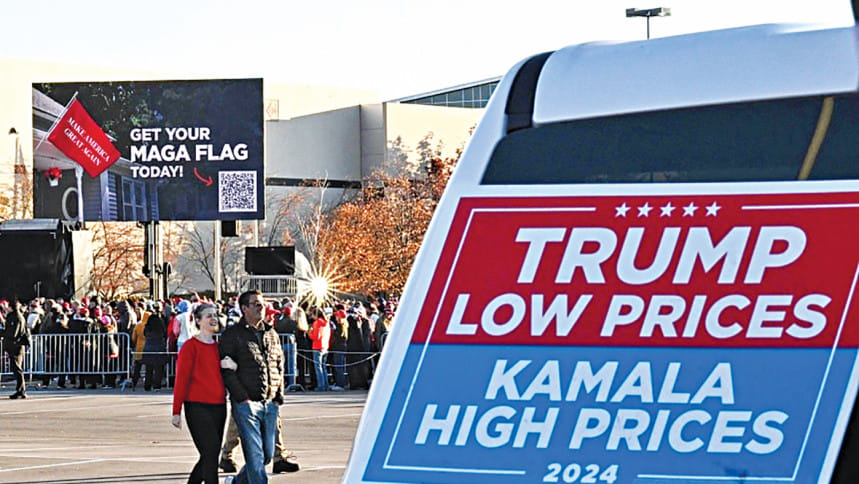US PRESIDENTIAL RACE For many, economy is personal and they blame Democrats
Tiesha Blackwell, 24, voted for Joe Biden in 2020 but says she is casting her ballot for Republican former president Donald Trump this year, and high food and housing prices are a chief reason.
Blackwell, who lives southwest of Detroit in the battleground state of Michigan, says she has a better job now, but her rent has since doubled after she was forced to move, and her grocery and utility bills have soared.
“I’m not worse off than I was four years ago,” Blackwell said on the sidelines of a rally featuring Trump’s running mate JD Vance in Detroit this month.
“But compared to then, things are really, really high out here. I went from paying $575 to now I pay $1,100 just for rent. I remember ground chuck was $2.99 a pound. Now it’s $4.99. Everything is higher.”
The United States’ post Covid-19 economic recovery has been the envy of the developed world, with strong consumer spending and business and federal investment helping the economy dodge a predicted recession.
Stock markets are at record highs, jobs and wages are growing fast, unemployment is low and inflation is now below January 2020 levels after a spike in 2022.
But prices for food, rent, utilities and treats like dining out are all well above 2019 levels, because of complex factors the US government has limited impact on, like labor costs, lack of competition and supply chain issues.
Many Americans are in a constant state of sticker shock.
That may explain why voters in the seven battleground states that will determine the winner of the November 5 election have a negative view of the economy, with 61 percent saying it is on the wrong track in a Reuters/Ipsos poll this month, and 68 percent saying the cost of living was on the wrong track.
Vice President Kamala Harris, the Democratic nominee, and Trump have proposed different fixes.
Harris has promised to fight price gouging and boost a child tax credit, while Trump has proposed cutting taxes on overtime pay, imposing blanket tariffs on imports that he says will bring manufacturing back to the US and mass deportation of immigrants.
Trump’s proposed tariffs and deportation threats will drive up prices for goods and services, many economists say, while Harris’ price-gouging ban is untested on a federal level.
Still, when asked which candidate had the better approach on issues, Trump led on the economy – 46 percent to 38 percent, this month’s Reuters poll showed.
People who study economics say they feel voters’ frustration even if they don’t think Trump’s plan will help.
LondonGBDESK//



Comments are closed.